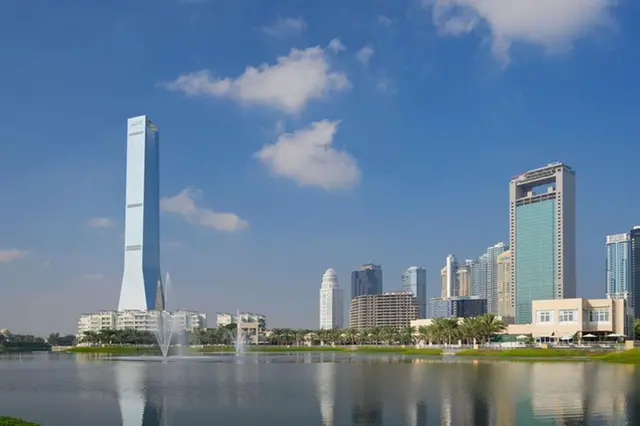DMCC has announced the launch of the DMCC Sustainability Hub, a new ecosystem aimed at pioneering (ESG) best practices among its member base of over 24,000 companies. This new ecosystem, …
ESG
-
Ajman Bank is partnering with KPMG ESG Services following the signing of a Memorandum of Understanding (MOU), which aims to develop Ajman Bank’s inaugural ESG Framework. The MoU was signed …
-
-
Latest News
First Abu Dhabi Bank’s 2024 Global Investment Outlook (GIO) Report: ‘Making a positive impact’
by salehFirst Abu Dhabi Bank’s 2024 Global Investment Outlook (GIO) Report: ‘Making a positive impact,’ forecasts that the economies of the UAE and Gulf countries will outpace the global forecast for …
-
EnvironmentGovernanceLatest NewsSocial
QFC Employment Standards Office hosts strategic dialogue on just transition and ESG
by salehThe Employment Standards Office (ESO) of the Qatar Financial Centre (QFC) recently hosted a Strategic Dialogue under the theme ‘The Importance of Just Transition and Investment in Human Capital to …
-
GovernanceSpecial Reports
KPMG Survey: Addressing the Strategy Execution Gap in Sustainability Reporting
by salehA new survey from US audit, tax, and advisory firm KPMG LLP explores addressing the strategy execution gap in sustainability reporting. The survey, which collected responses from the US (61 …
-
Developing storiesEnvironmentSocial
Dubai Chamber of Commerce research spotlights key drivers in adoption of ESG practices
by salehWhile the hubbub around COP28 might have simmered down, sustainability remains a focal point in policy regionally, and at the beginning of this month, the UAE announced the extension of …
-
-
Emirates NBD Bank PJSC has become the first financial institution to benefit from an ESG fee waiver launched by the Dubai Financial Services Authority (DFSA). This fee waiver was announced …
-
The pledges made at last year’s United Nations Climate Change Conference (COP28) in Dubai reflect the growing political will to tackle climate change head on and in an equitable way. …




